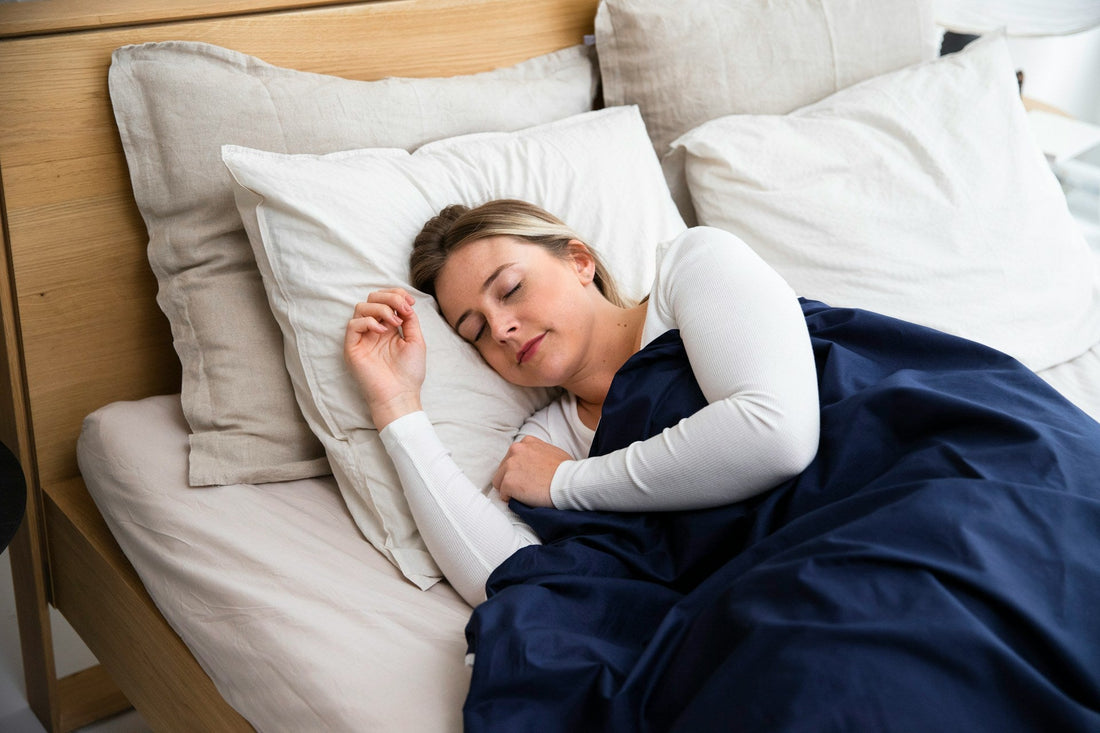
Tips for Better Sleep Quality During Menopause
Menopause is a natural phase in a woman's life that brings about many changes, including various sleep disturbances. Whether it's insomnia, night sweats that leave you tossing and turning, or restless legs that won't settle, these sleep issues can be quite challenging. They often stem from the hormonal shifts your body is experiencing, affecting your nighttime rest and leaving you feeling drained.
Addressing sleep problems during menopause is essential for maintaining energy, mood, and overall health. Fortunately, there are natural ways to improve your sleep quality. By incorporating some simple changes into your nightly routine and environment, you can help create a more restful sleep experience.
Understanding Sleep Issues During Menopause
During menopause, many women find themselves grappling with issues like insomnia, frequent awakenings, and even restless legs. These sleep disturbances are linked to the hormonal changes that occur as your body transitions through menopause. Estrogen and progesterone levels fluctuate and decline, which can affect how easily you fall asleep and stay asleep.
So, what are the common sleep struggles women face during this time? Here are a few to consider:
- Insomnia: Difficulty falling or staying asleep, leading to tiredness during the day.
- Night Sweats: Sudden waves of heat that can cause discomfort and wakefulness.
- Restless Legs: Uncomfortable sensations that create an urge to move your legs, impacting sleep.
These issues can lead to fragmented sleep, which in turn affects your mood, cognitive function, and overall quality of life.
Creating a Sleep-Friendly Environment
One effective way to tackle sleep problems during menopause is by creating a relaxing and conducive sleep environment. A few adjustments can make all the difference in how well you rest:
1. Keep Your Room Cool and Dark: A cooler room helps manage night sweats, while darkness signals your body it's time to sleep.
2. Comfortable Bedding: Soft, breathable sheets and a supportive mattress can enhance your comfort throughout the night.
3. Consistent Schedule: Going to bed and waking up at the same time each day can help regulate your body's internal clock, making it easier to fall asleep and stay asleep.
These steps create a sanctuary that encourages relaxation and sleep, helping to combat the disturbances often experienced during menopause.
Natural Remedies to Improve Sleep
Finding sleep hard to come by during menopause? Trying some natural remedies could help ease your nights. Relaxation techniques are a great starting point. Consider meditation and deep breathing exercises, which can calm the mind and prepare the body for rest. Taking just a few minutes before bed to focus on your breathing or engage in mindful meditation can make a real difference.
Herbal teas like chamomile or lavender are also popular bedtime companions. These soothing drinks can relax your senses and set the tone for better sleep. Sipping on a warm cup before bed might help ease you into slumber. Speaking of natural solutions, our probiotic supplements are crafted with ingredients selected for their ability to enhance sleep quality and overall health. These supplements aim to support the unique changes occurring in the body during menopause, contributing to a more restful night.
Lifestyle Changes for Better Sleep
Adjusting daily habits can have long-term benefits for sleep quality. Here's a simple list to consider:
1. Balanced Diet: Make sure your meals contain plenty of fruits, vegetables, and lean proteins. These foods help provide the nutrients needed for balanced energy levels.
2. Regular Activity: Engage in physical activity regularly but try to finish intense workouts a few hours before bedtime. Exercise during the day can improve sleep patterns over time.
3. Limit Caffeine and Alcohol: Reducing caffeine and alcohol, particularly in the evening, can prevent disruptions in sleep.
Adopting these habits isn't an overnight change, but gradual shifts can lead to better sleep.
Embracing Better Sleep During Menopause
For many, menopause presents a new chapter filled with adjustments, especially concerning sleep. By understanding and addressing these disruptions, you can pave the way for better nights. Relaxation techniques and environmental changes support restful sleep, while lifestyle tweaks can foster long-term wellness. You're not alone in this journey; providing yourself with the right tools and understanding can make all the difference.
Continuing to explore and embrace tailored solutions may improve how you navigate this transition. Enhancing sleep during menopause is about finding what works best for you, ensuring that restful nights lead to brighter, healthier days.
If you're looking for a natural way to support better rest and ease menopause-related changes, SlenderFlora is here to help. Our probiotic supplement was made for women experiencing menopause or peri-menopause, offering a hormone-free option for improved sleep and overall wellness. Learn more about how our unique formula can help by exploring our supplements for menopause today.


